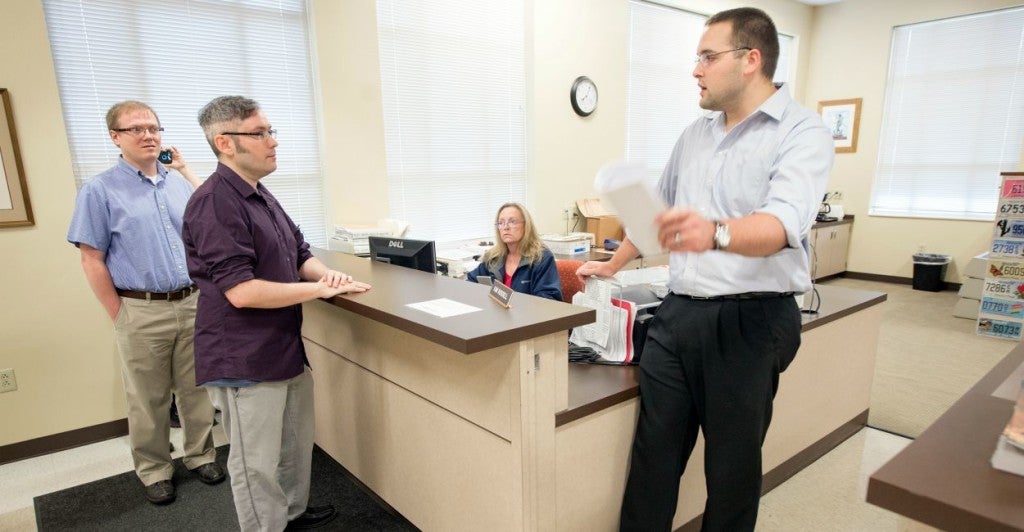In the wake of the Supreme Court’s ruling redefining marriage throughout the country, there’s an open question as to what happens to people who believe marriage is the union of husband and wife.
Yesterday the Supreme Court declined to review a lower court’s ruling requiring the county clerk of Rowan County, Ky., to issue marriage licenses to all legally eligible couples.
Kim Davis, the clerk for Rowan County, has a sincere religious belief that marriage is the union of husband and wife, and says she cannot in good faith issue a marriage license to a same-sex couple. As a result she stopped issuing marriage licenses to all couples (both same-sex and opposite-sex) after the Supreme Court’s marriage ruling in June.
In this way she thought she would avoid the charge of discrimination.
She also wouldn’t allow any other clerks in her office to issue marriage licenses. The result: no one could get a license in Rowan County.
>>>For more on this, see Ryan T. Anderson’s new book, “The Future of Marriage and Religious Freedom.”
This created a problem. The citizens of Rowan County have a right to receive in a timely and efficient manner the various government provisions—including licenses—to which they are entitled.
At the same time, the employees of Rowan County (including civil servants) have rights, including religious liberty rights, and they are entitled to religious accommodations. But a religious accommodation, like religious liberty in general, is not absolute.
The law requires a reasonable accommodation that does not place undue hardships on the employer—in this case the government. Saying your religion requires your entire office to stop issuing marriage licenses to everyone, while perhaps a sincere belief, cannot be reasonably accommodated without placing undue hardships on the citizens unable to receive their licenses in their county and forced to drive to another.
That the clerk in Rowan County couldn’t be accommodated does not mean that no clerk should ever be accommodated. Unfortunately, some activists on the left think all wedding professionals and civil servants should be forced to violate their beliefs about marriage or find a new line of work.
There’s a better way.
As I explain in my new book, “Truth Overruled: The Future of Marriage and Religious Freedom,” there are ways in which public policy can create a win-win situation: where all eligible couples can receive a license and where as many employees as possible can be accommodated.
North Carolina provides a great example. The state legislature earlier this year passed a law that protects magistrates who object to performing solemnizing ceremonies for same-sex marriages and clerks who object to issuing same-sex marriage licenses. It also makes clear that no one can be denied a marriage license, but magistrates or clerks could recuse themselves from the process behind the scenes should they have sincere objections to same-sex marriage.
Again, it’s a win-win for everyone. No one loses anything.
It’s not just the North Carolina law. Title VII of the Civil Rights Act of 1964 requires the government to accommodate conscientious objectors as best it can. Title VII applies to all employers, including the government, and requires that employers grant reasonable religious accommodations to employees, provided those accommodations don’t create an undue hardship for the employer.
Professor Robin F. Wilson of the University of Illinois Law School writes, “A common refrain is that religious objectors in government service should do all of their job or resign. This stance conflates the public receipt of a service offered by the state with the receipt of that service from each and every employee in the office who is available to do it.” In other words, as Wilson says, citizens have a claim to receive certain “services from the state, but they do not necessarily have a claim to receive the service from a particular public servant.”
Religious objection is not a trump card, but employees’ religious objections should be accommodated when possible.
The Rowan County clerk’s demand couldn’t be accommodated. But North Carolina provides a great model for achieving peaceful coexistence going forward.
